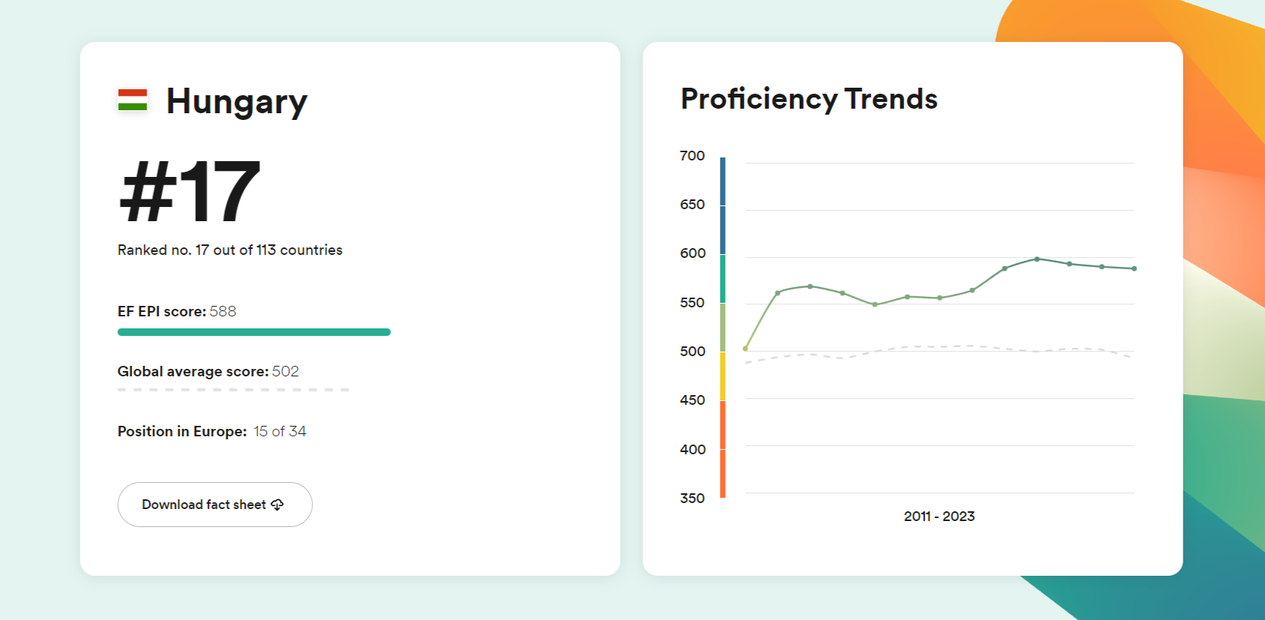Hungarians rank surprisingly high in English proficiency

The recently unveiled English Proficiency Index has not only reaffirmed the Netherlands’ reign in English proficiency, but has also brought attention to Hungary’s noteworthy position.
Hungary’s respected position in English proficiency
According to Player.hu Hungarians are surprisingly high in the ranking of English learners. The EF EPI is the world’s largest ranking of countries and regions by English skills based on test results of 2.2 million adults in 113 countries and regions. Securing a place in the “High proficiency” category and standing 17th overall among 113 countries, Hungary’s language achievements are impressive. Notably, within Hungary, the city of Pécs emerged as a leading force in English proficiency. Considering Hungary’s placement among a diverse range of countries, it is indeed a commendable achievement. With three lower proficiency categories encompassing more populous nations, Hungary’s standing is a testament to its commitment to mastering the English language.

The Dutch dominance
While the Netherlands continues to dominate the English proficiency rankings, the reasons behind their success may not be immediately apparent. The Dutch Review has outlined some compelling factors, with one surprising revelation: no dubbing of films or TV series. In the Netherlands, English is ingrained in the population from childhood, as they rely on subtitles rather than dubbing. This unique approach contributes to a natural and early exposure to the language.
Other factors behind Dutch proficiency
Interestingly, the absence of dubbing in the Netherlands leads to an unintended consequence: many Dutch individuals become avid fans of long American TV series. While this may seem like a minor side effect, it inadvertently enhances their English language skills, as they become accustomed to the language through extensive viewing. Furthermore, their global thinking, driven by a pragmatic and business-oriented approach, is a key factor.
With a population of 17 million spread over 41,500 km², the Dutch understand the importance of a confident command of English in the global market. Lastly, the linguistic connection between English and Dutch, both belonging to the Germanic group of the Indo-European language family, simplifies the learning process. The similarities provide an advantage, making it easier for the Dutch to grasp English concepts and expressions.
In conclusion, Hungary’s surprising success in English proficiency and the Netherlands’ continued dominance underscore the diverse factors that contribute to a country’s language skills. Whether through historical experiences, unique cultural practices, or linguistic connections, these rankings offer valuable insights into the dynamics of language acquisition on a global scale. You can read more of our articles about languages HERE.
Source: Player.hu





